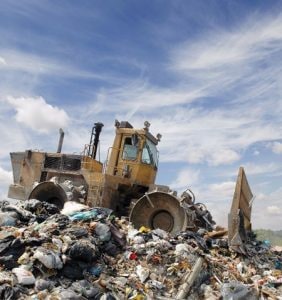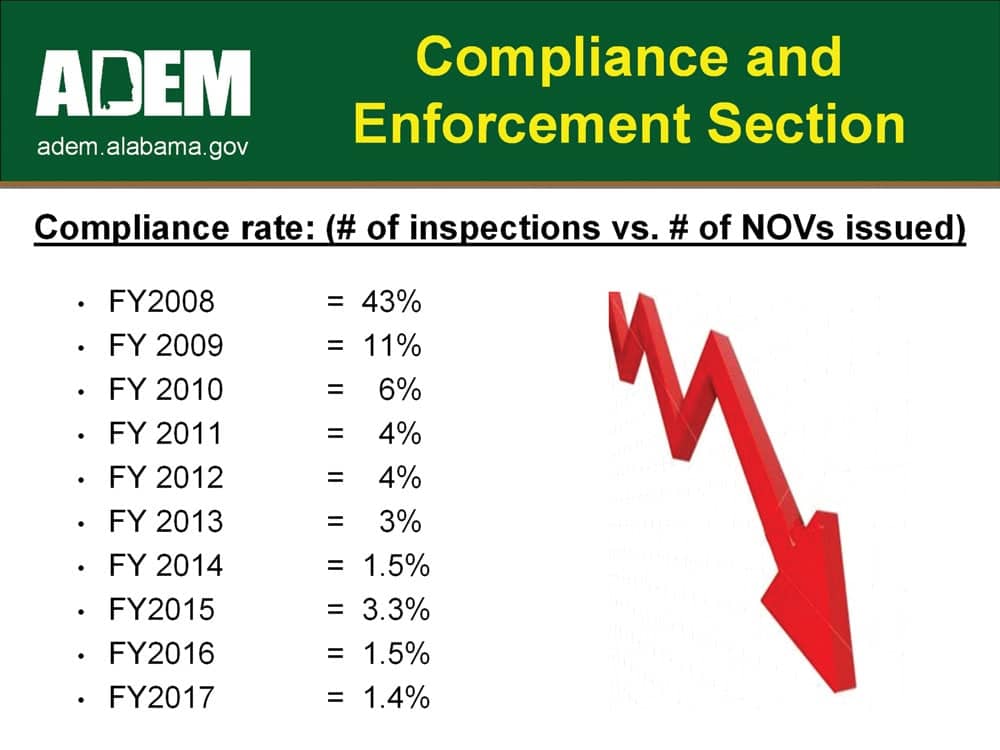Is operating a landfill a dying art?
By Jenny Johnson
More than 27 years have passed since the promulgation of the Subtitle D regulations in 1991, and our labor force is changing. Many experienced landfill operators are reaching the age of retirement, and there is no one to fill their shoes. There are fewer young adults in America who have worked on their own cars or have grown up on farms and learned to maintain and operate equipment. Our education system seems to be focused on preparing students for a college education and no longer prioritizes developing students for skilled trade careers. Whatever the cause, the fact remains that there are fewer young adults with the desire to learn how to operate heavy equipment.

The economy further influences the availability—or lack thereof—skilled equipment operators. During economic booms, equipment operators typically rush to higher paying construction jobs. In a slow economy, construction jobs either dry up or become seasonal, or require more travel of their equipment operators, making landfill operations more attractive since the work is local and stable. We have heard frustration from many owners of both municipality-owned and privately-owned facilities as they struggle to entice the younger generation to become equipment operators. In fact, many are turning back to those that have already retired, attempting to get them to come back to full-time work or even on a part-time basis. Municipality-owned facilities are at an even bigger disadvantage, as typically, they cannot compete with the pay or benefits of the larger private waste companies.
We have listened to many landfill operators who have come through our Joyce Training Program. Being a landfill operator is a challenging job. In addition to the work being hot, dusty and smelly, the risks a landfill operator faces are often greater than those faced on a construction site. For example, construction equipment operators generally do not have to worry on a daily basis about encountering dangerous or hazardous materials, such as used needles containing pathogens that someone has thrown away. In addition, landfill operators must be concerned with the safety of the public who have no knowledge of the risks associated with walking around heavy equipment while it is operating. Therefore, it is critical that landfill operators are properly trained to minimize their occupational risks, as well as those to the public.
To maintain their landfill operator licenses, operators are required to participate in a continuing education program that can provide enhanced safety, operational procedures and compliance while relieving complacency that may develop on the job. What’s more, certified operators are more likely to stay in the industry, thus maintaining the pool of employable operators.
There are additional key advantages that a certified landfill operator provides to the operation of a facility, including increased revenues and better environmental protection. Let’s take a closer look at both of these benefits.

Photos courtesy of LaBella Associates.
Certified Operators Increase Revenues
Having trained and certified landfill operators not only reduces the occupational risks they face, but also increases the bottom line of a facility. A properly trained operator works more efficiently and is more effective with the equipment they operate. This results in better in-place compaction density and minimization of the quantity of cover material used, which leads to lower operating cost per ton, as well as more airspace or capacity. Smart landfill operations offer landfill owners a competitive advantage and enable them to either offer a lower tipping rate or be more profitable if the tipping rate remains unchanged.

We have seen many examples of increased values in the landfill airspace due to changes in operations. While the increase in some values are less than that described in the example, the increase in other values have been greater. The point is, by teaching operators how to properly operate and manage the landfill working face, the owners will benefit by operating in a safer manner and more profitably while staying in compliance with the regulations and permit conditions.
Certified Operators Increase the Protection of the Environment
Certified operators should not only be trained in the dangers they face and how to operate a landfill efficiently, but they should also receive training in solid waste regulations. They should be taught how their actions can impact storm water, groundwater, and air quality and what the monetary consequences associated with environmental clean-up are. Having certified waste management operators can limit or reduce the owner’s liability and can also reduce insurance costs.
Data show that the presence of trained and certified landfill operators can result in fewer regulatory violations at landfills. Fewer violations equate to fewer monetary penalties. For example, in Alabama, mandatory landfill operator training went into effect in fiscal year 2009. As the chart shows, during the first year the law became effective, there was a drop in the number of Notice of Violations issued by the Alabama Department of Environmental Management (ADEM) to solid waste facilities. Simultaneously, there has been a significant increase in the facility compliance rate. Within one year of implementing mandatory landfill operator training, the compliance rate dropped into single digits and has remained consistently below 6 percent.

Image courtesy of ADEM Solid Waste Program Update, 2017 SWANA Fall Forum, November 3, 2017.
A Critical Challenge
In summary, a certified landfill operator learns how to protect human health and the environment, how to operate in a safe manner for employees and customers, and how to be fiscally responsible. Therefore, the lack of landfill operators in the workforce is a critical challenge the industry must face head on. We can’t afford not to.
Case Study: Reducing Operating Costs
An example of how certified operators provide a financial benefit concerns one of LaBella Associates’ clients, who had only one licensed operator onsite in order to meet the minimum state regulatory requirements of the landfill permit. The landfill owner attended a Joyce Landfill Operator Training Course and realized the financial benefits that could be achieved by sending several site operators through the certification training course. During the first year, after three additional operators were trained, the landfill’s in place waste compaction density increased from 0.6 ton per cubic yards to greater than 0.75 ton per cubic yard, which is more than a 25 percent increase. The revenue from each cubic yard of landfill airspace increased by $5.25. This site had more than 1 million cubic yards of permitted waste disposal volume remaining, so the increased value to the owner due to the increase in compaction density was in excess of $5,000,000. However, there was an additional financial benefit to this owner. Due to the increased compaction density, the daily working face was smaller and the volume of cover soil was reduced. The smaller working face and reduction in the quantity of soil used lowered the operating cost per ton of the landfill. In other words, the value of the airspace increased while the operating costs were reduced.
Jenny Johnson is Waste and Recycling Division Director for LaBella Associates (Rochester, NY), where she leads civil and environmental engineers, geologists and environmental scientists focused on providing solutions for their waste industry clients. The Waste and Recycling Division was formerly Joyce Engineering, Inc., which LaBella acquired in 2017. Jenny can be reached at (804) 355-4520 1604 or via e-mail at [email protected].
